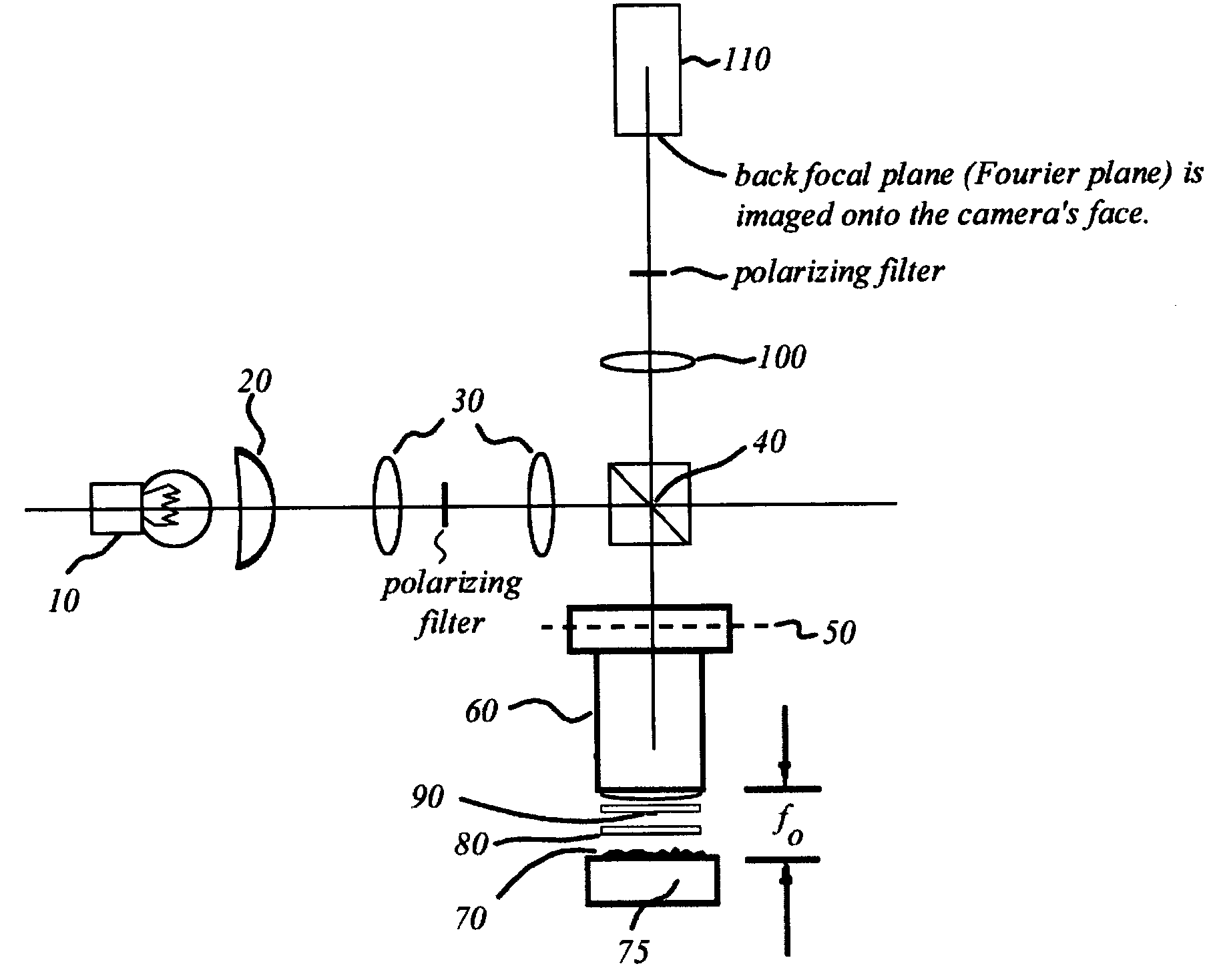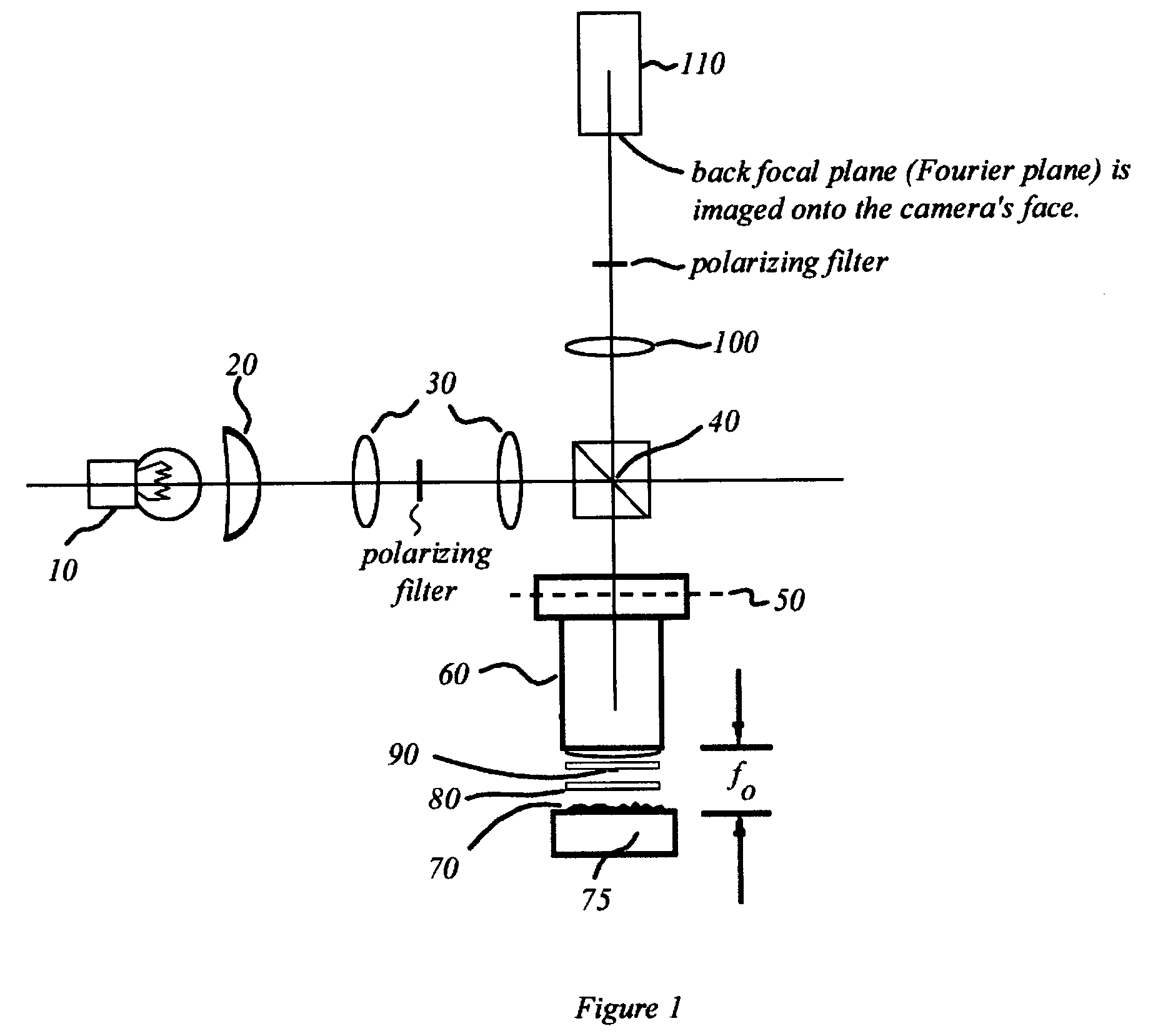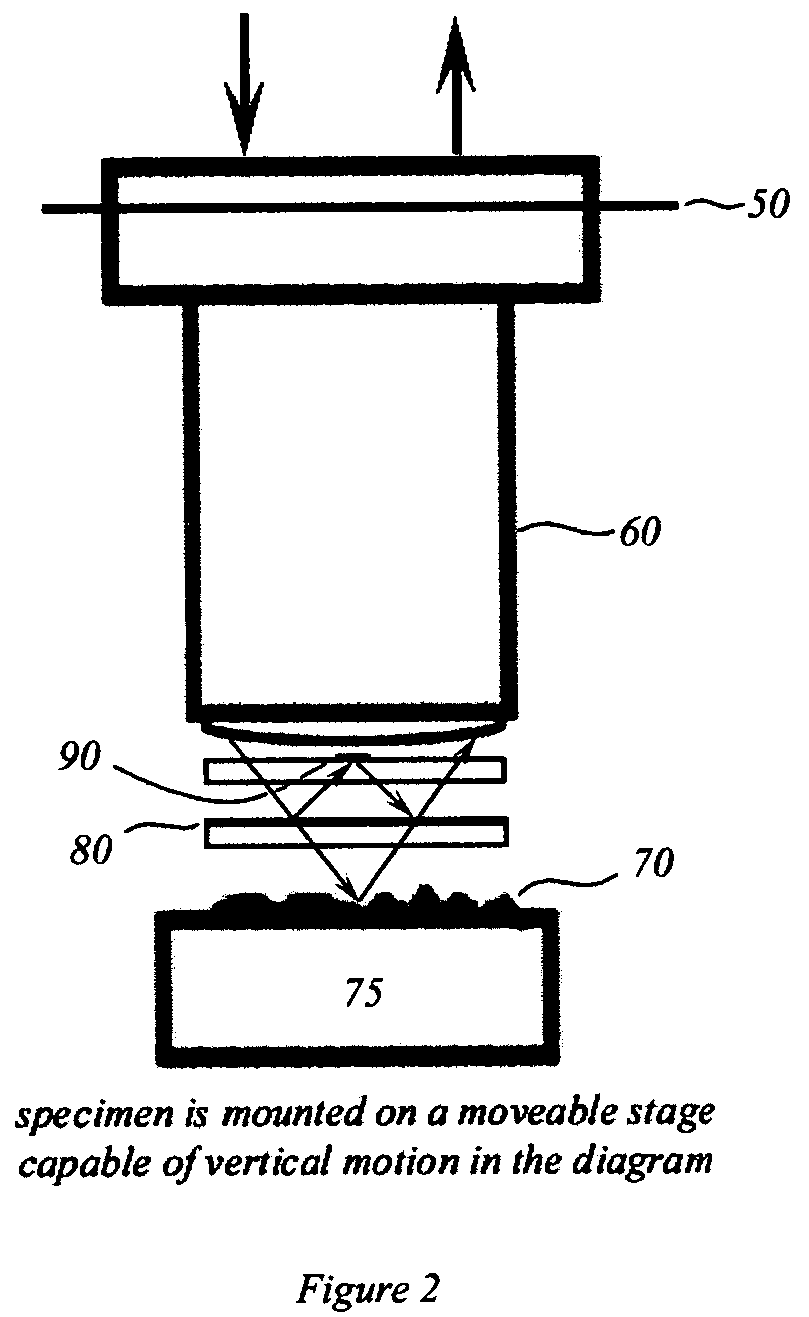Interference scatterometer
a scatterometer and interference technology, applied in the field of optical scatterometers, can solve the problems of not being able to measure the specular reflectivity amplitude, the inability of current scatterometers to simultaneously measure scattering data at multiple angles and wavelengths, and the inability to use the spectrum reflectivity amplitude and illumination angles to measure the effect of intensity
- Summary
- Abstract
- Description
- Claims
- Application Information
AI Technical Summary
Benefits of technology
Problems solved by technology
Method used
Image
Examples
Embodiment Construction
FIG. 1 is an illustration of a Mireau interference microscope adapted in accordance the present invention. A light source 10 provides broadband illumination for the microscope. Light source 10 is a highly incoherent luminous source such as an arc lamp or a tungsten halogen lamp. Light source 10 is directed to and imaged on back focal plane 50 of microscope objective lens 60 by condenser lens 20, lenses 30, and beamsplitter 40.
Imaging a highly incoherent light source on back focal plane 50 in this manner provides a type of illumination known as Koehler illumination to the back focal plane 50 of the microscope. Koehler illumination is characterized by a minimum of spatial coherence between any two points on back focal plane 50. That is, in Koehler illumination, the mutual coherence function is nearly zero for any spaced-apart two points on back focal plane 50.
The optical reference path of the Mireau interference microscope is shown in FIG. 1 and again, in more detail, in FIG. 2. Th...
PUM
 Login to View More
Login to View More Abstract
Description
Claims
Application Information
 Login to View More
Login to View More - R&D
- Intellectual Property
- Life Sciences
- Materials
- Tech Scout
- Unparalleled Data Quality
- Higher Quality Content
- 60% Fewer Hallucinations
Browse by: Latest US Patents, China's latest patents, Technical Efficacy Thesaurus, Application Domain, Technology Topic, Popular Technical Reports.
© 2025 PatSnap. All rights reserved.Legal|Privacy policy|Modern Slavery Act Transparency Statement|Sitemap|About US| Contact US: help@patsnap.com



